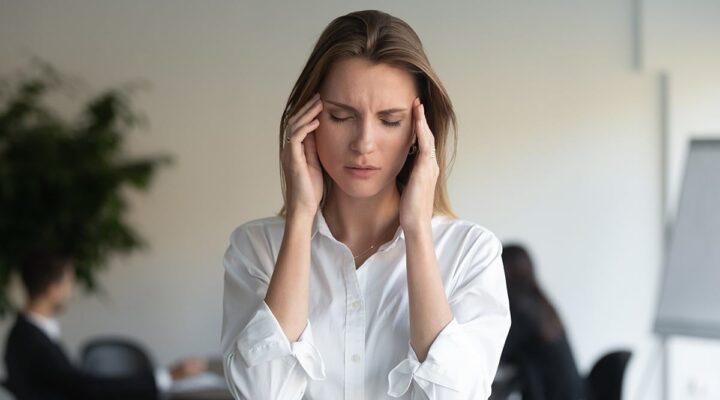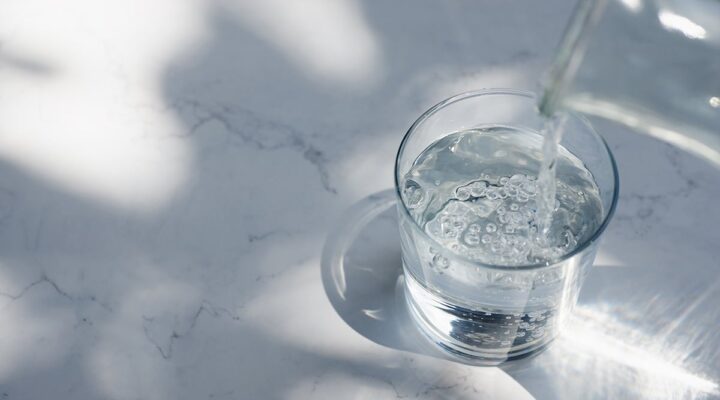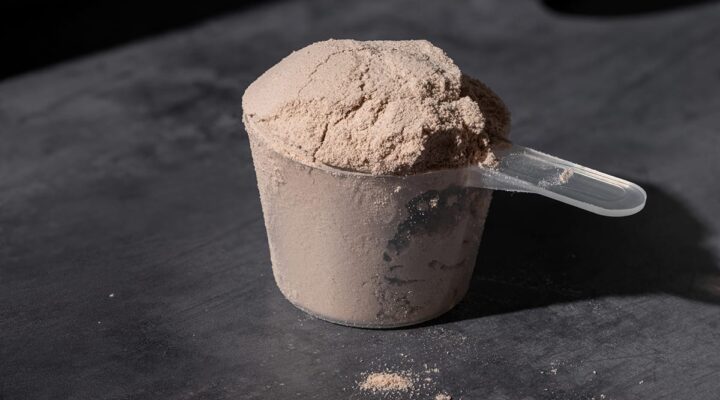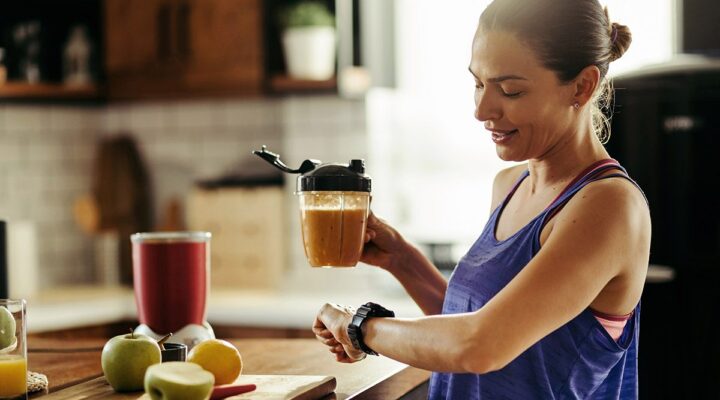Supplements for Vegans: Should You Be Taking a Multivitamin?
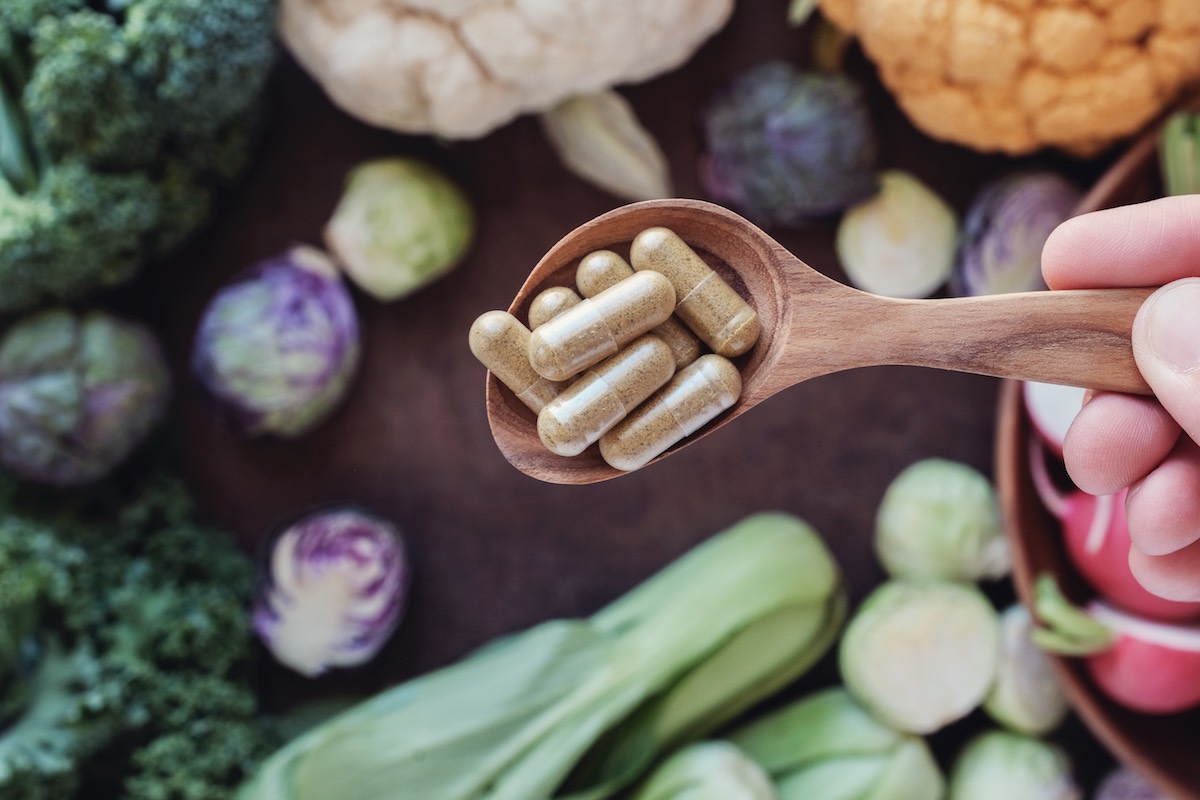
Veganuary has come at an odd time this year. Amid a global pandemic and coupled with a distinct lack of sunlight, the importance of proper nutrition has sky-rocketed. This might have people making diet changes wonder what impact the transition will have on their short-term health.
When it comes to vitamins and minerals, there is no better source than whole plant foods. If we’re being real though, not all vegans are consuming a full rainbow. Plus some nutrients are slightly harder to find in vegan diets, especially when taking into account modern food production systems and lifestyles.
A vegan multivitamin could be a handy stand-in then. We like to think of a daily supplement in the same way you’d take out an insurance policy; a guarantee to ensure your body gets the vitamins and minerals it needs. Here we breakdown five vitamins and minerals that are harder to find in vegan diets, and would therefore be useful to top up in supplement form.
Which Vitamins Should Vegans Look To Supplement?
Vitamin B12
Vitamin B12 keeps the body’s nerve and blood cells healthy and helps make DNA, the genetic material in all cells. It also helps prevent a type of anemia called megaloblastic anemia that makes people tired and weak.
Foods rich in vitamin B12 include unwashed organic produce, mushrooms grown in B12-rich soils, and spirulina. Vitamin B12 naturally comes from bacteria in the soil you see and would have traditionally been consumed from unwashed plants. Not only do we wash our fruit and veg these days, but food production standards also threaten to over-sanitise our food, washing them in chlorine, or other sterilising solutions, so there’s not a trace of B12 left.
Many farm animals are also deficient in vitamin B12, with their diets also topped up with supplements. This is how much of the B12 gets recycled down the food-chain. It’s a bit of an endless, B12 deficient cycle, one best solved by taking a multivitamin designed for your needs.
There are two forms of B12 in supplements, cyanocobalamin, and methylcobalamin. Cyanocobalamin is the inactive form used mainly in fortified foods and drinks. Methylcobalamin is the active form of vitamin B12. It doesn’t require any metabolic reactions to be activated and is useful for people who might have digestive issues.
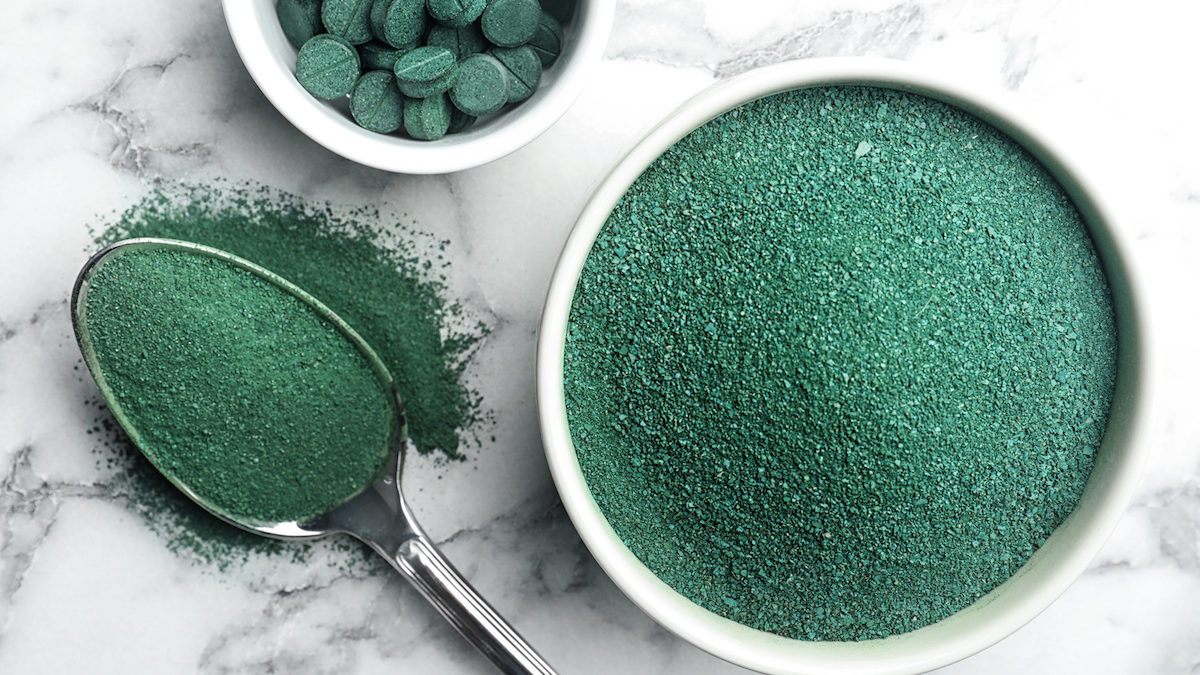
Iodine
Iodine is an essential mineral most commonly found in seafood and crucial for healthy thyroid function, which controls your metabolism. In adults, an insufficient iodine intake can lead to hypothyroidism, a condition where your thyroid gland doesn’t produce enough hormones resulting in tiredness, weight gain, and low mood.
Vegans are considered at risk of iodine deficiency, with a study from South Bank University finding that of the 30 people on vegan diets studied, 63 percent had iodine intakes lower than the Reference Nutrient Intake. Similarly, research out of Boston Medical Center found that of the 63 vegans and 78 vegetarians studied, those on a strictly vegan diet had up to 50 percent lower blood iodine levels.
Iodine levels in plant foods depend on the iodine content of the soil in which they were grown. For instance, food grown close to the ocean tends to be higher in iodine.
“Seaweed is an excellent source of iodine,” says Vanessa Rohmig, our certified naturopathic nutritionist here at Form, “but not everyone likes seaweed and people won’t really eat it frequently enough therefore supplementing it is recommended.”
Do remember as with most vitamins and minerals, Iodine over-consumption is also possible. The National Institutes of Health guidelines say the safe upper limit for adults is 1,100 micrograms of iodine per day.
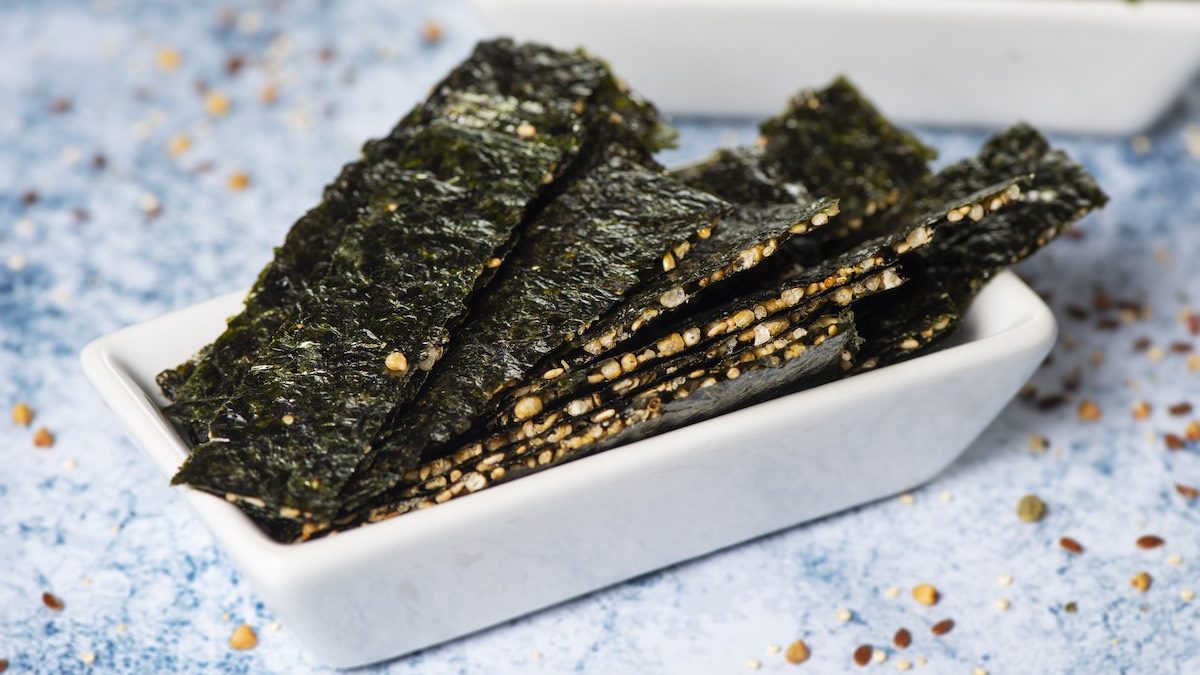
Vitamin D
From healthy bones to fighting disease and depression, the benefits of vitamin D are widespread. Probably the most vital benefit at the moment is the links to Covid-19 with a study published in The Journal of Clinical Endocrinology & Metabolism finding that 80 percent of 216 Covid patients studied didn’t have adequate levels of vitamin D in their blood.
We get most of our vitamin D from the sun, which is sadly in short supply during winter. In terms of food sources, fish and egg yolks are the main places to look, but not particularly helpful for vegans. This is where a vitamin D supplement can become a lifeline.
The term vitamin D can be confusing when looking for a supplement because you will not find anything labeled simply as ‘vitamin D’ in your pharmacy. Rather, your choices will be vitamin D2 or vitamin D3.
Vitamin D2 comes from plant sources, like wild mushrooms which can synthesise vitamin D when exposed to the sun’s UV light. Vitamin D3 however mainly comes from animal sources. When your skin is exposed to sunlight, it produces vitamin D3 and is, therefore, more important than D2 when you’re looking to make up for lost sun exposure. Studies also suggest that vitamin D3 is more effective at raising your blood levels of vitamin D.
Always check the label of your multivitamins, Those containing vitamin D3 may not be suitable for vegans for example. Vegan vitamin D3 supplements are rare, but they do exist; and with the links between vitamin D deficiency and COVID, it’s a search worth making.
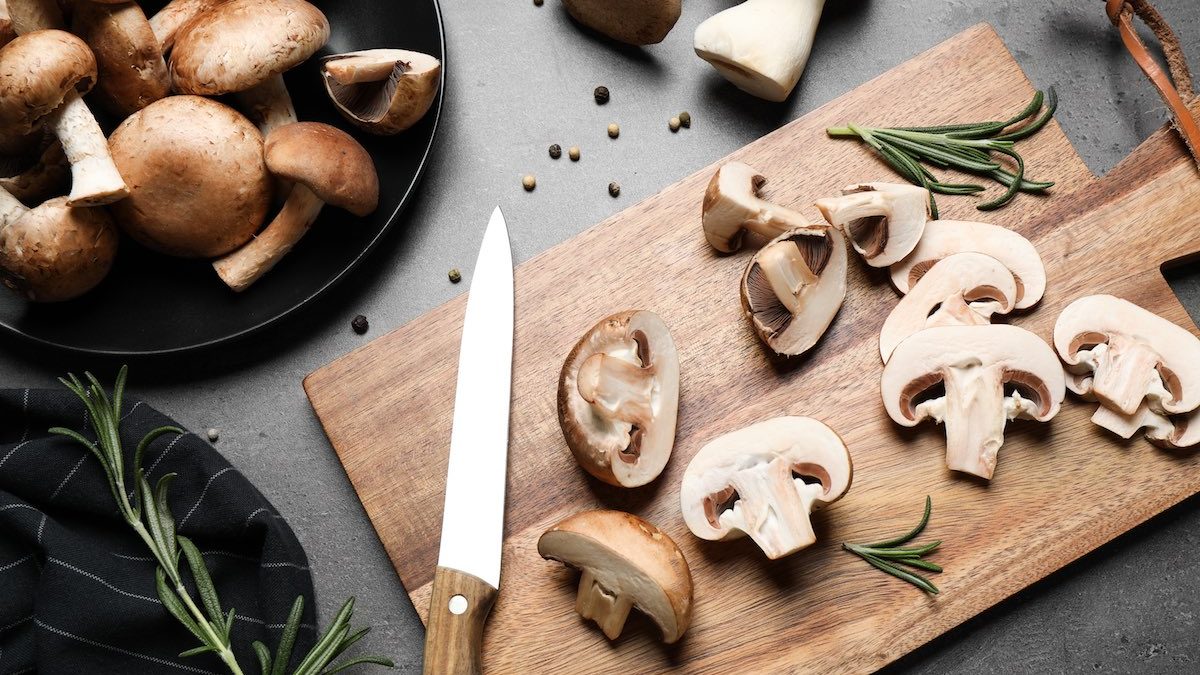
Iron
The main purpose of iron is to carry oxygen in the hemoglobin of red blood cells throughout the body so cells can produce energy. As a consequence, too little iron can lead to anemia and symptoms like fatigue and decreased immune function.
The RDA for adult men and post-menopausal women is 8 mg of iron a day, increasing to 18 mg per day for adult women, and 27 mg per day for pregnant women, whose body needs the extra iron to make more blood to supply oxygen to their baby.
Iron can be found in two forms: heme, which is found in animal products, and non-heme, found in plants. Heme iron is more easily absorbed from your diet than non-heme iron, and as such vegans are often recommended to aim for twice the normal RDA.
“Inversely, heme iron is not regulated by the body, whereas your body regulates non-heme iron,” says Rohmig. “Iron is a pro-oxidant which means excess iron cannot be excreted from the body. Excessive absorption of iron can also contribute to progressive inflammation.
“It has been shown that heme iron is considerably less regulated than that of non-heme iron, therefore a high intake of heme iron can lead to excess iron absorption. Non-heme iron from plant sources like lentils, blackstrap molasses, and collard doesn’t cause this toxicity as our body only absorbs as much as it needs.
“An extra way to boost non-heme iron foods is to eat it with Vitamin C like lemon, peppers, oranges, and cauliflower as it increases bioavailability by around three times, surpassing the bioavailability of heme iron. Plant foods such as broccoli and leafy greens already contain Vitamin C. Foods rich in vitamin A as well as onion and garlic also boosts non-heme iron absorption by 73.3 percent. It’s generally advised to avoid caffeine when you’re eating an iron-rich plant meal, as caffeine can inhibit iron absorption.”
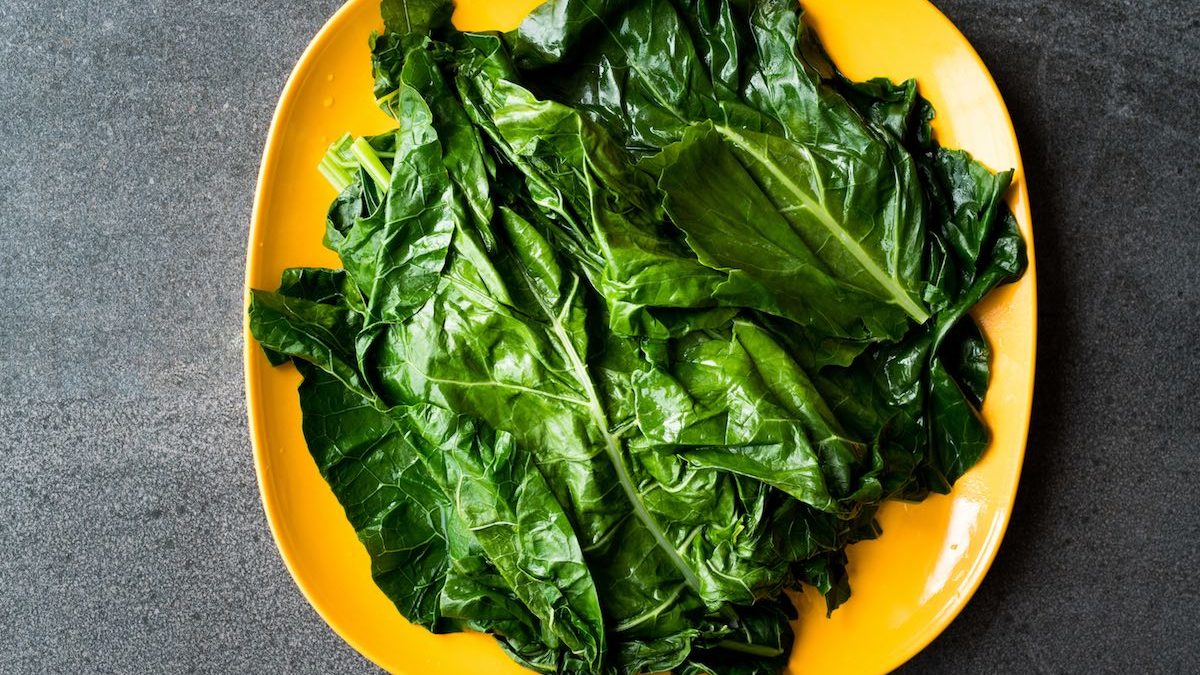
Zinc
Important in maintaining your immune function and repairing body cells, zinc also plays a big role in your skin health. “A lot of people with acne, for example, are severely deficient in zinc,” notes Rohmig.
Not many plant foods have high amounts of zinc, while those that are rich in the mineral, like seeds, tend to have a low absorption rate due to their phytate content. Referred to as the anti-nutrient, phytic acid impairs the absorption of iron and zinc.
However, this point is up for debate. “Phytates in plants have been shown to benefit us,” says Rohmig. “Concerns have been expressed regarding intake of foods high in phytates reducing the bioavailability of dietary minerals, suggesting that we need to soak, sprout and dry our seeds to get rid of phytates so we can absorb more minerals. But studies have demonstrated that this so-called anti-nutrient effect can be manifested only when extremely-large quantities of phytates are consumed in combination with a nutrient-poor diet.
“For healthy people, the consumption of these plant seeds actually acts as a powerful antioxidant and has been shown to reduce blood sugar, insulin, cholesterol, and triglycerides. Because it binds up some of the minerals, that just means one has to eat more whole, healthy plant foods, or eat mineral absorption enhancers, such as garlic and onions. In fact, the whole allium family of vegetables was recently found to have a ‘promoting influence[s] on the bioaccessibility of iron and zinc…[offering] up to 50 percent more absorption.'”
While not all vegans have low blood levels of zinc, a systematic review of 26 studies by the University of Sydney showed that vegetarians — and especially vegans — have lower zinc intakes and slightly lower blood levels of zinc than omnivores.
As such vegans are encouraged to aim for 1.5 times the RDA of 8-11mg per day or partake in low-dose supplementation, to increase their levels.
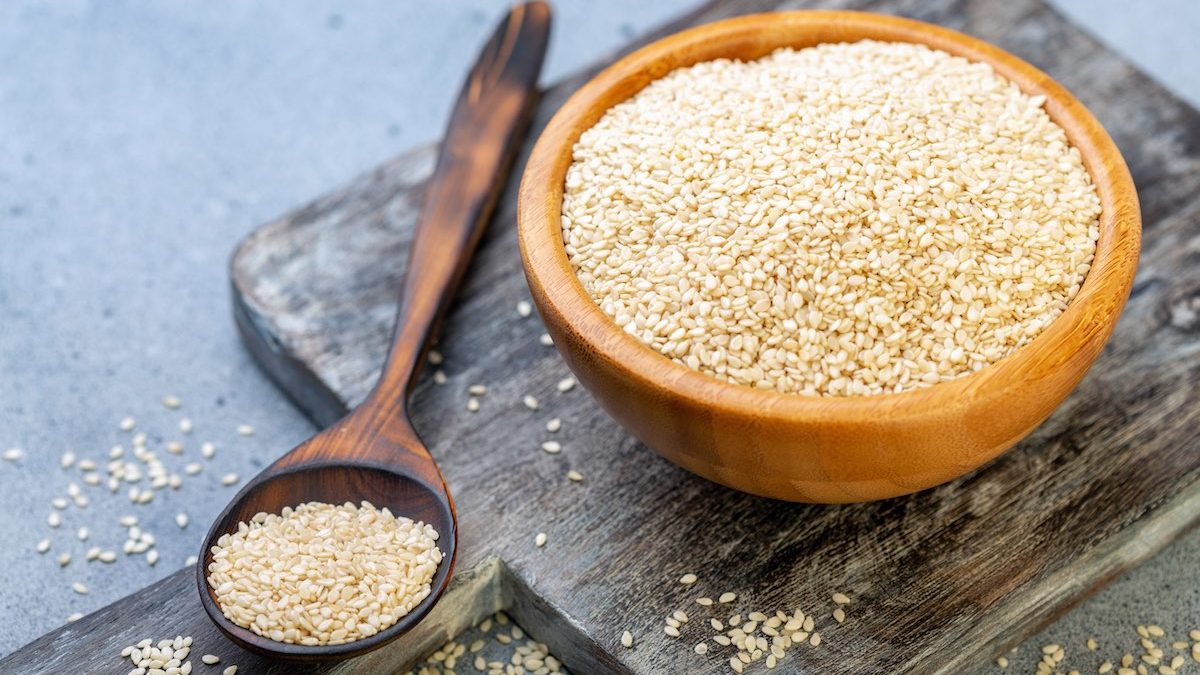
If you’re worried about your nutrient intake then Form’s multivitamin, or Multi as we like to call it, is here to help. Multi covers your daily vitamin and mineral requirements and more, with vegan DHA and Choline for brain health, and Vitamin D3 from Vita-algae D® for immunity, Multi is more than a multivitamin; it’s your daily nutrient peace of mind.



